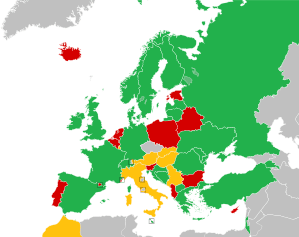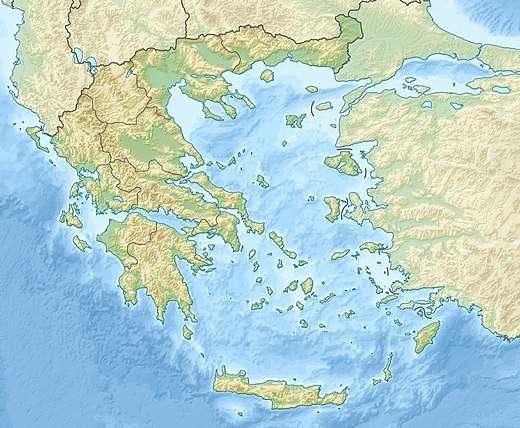Eurovision Song Contest 2006
The Eurovision Song Contest 2006 was the 51st edition of the annual Eurovision Song Contest. It took place in Athens, Greece, following Helena Paparizou's win at the 2005 contest in Kiev, Ukraine with the song "My Number One". It was the first time Greece had hosted the contest - 32 years after the country made its debut. Organised by the European Broadcasting Union (EBU) and host broadcaster Hellenic Broadcasting Corporation (ERT), the contest was held at the Nikos Galis Olympic Indoor Hall, and consisted of a semi-final on 18 May, and the final on 20 May 2006. The two live shows were hosted by Maria Menounos and Sakis Rouvas.[2]
| Eurovision Song Contest 2006 | |
|---|---|
| Feel The Rhythm | |
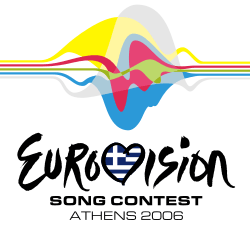 | |
| Dates | |
| Semi-final | 18 May 2006 |
| Final | 20 May 2006 |
| Host | |
| Venue | Nikos Galis Olympic Indoor Hall Athens, Greece |
| Presenter(s) | |
| Directed by | Volker Weicker |
| Executive supervisor | Svante Stockselius |
| Executive producer | Fotini Yannoulatou |
| Host broadcaster | Hellenic Broadcasting Corporation (ERT) |
| Opening act |
|
| Interval act |
|
| Website | eurovision |
| Participants | |
| Number of entries | 37 |
| Debuting countries | |
| Returning countries | None |
| Non-returning countries | |
Participation map
| |
| Vote | |
| Voting system | Each country awarded 12, 10, 8–1 point(s) to their 10 favourite songs |
| Nul points | None |
| Winning song | |
Thirty-seven countries participated in the contest. Armenia took part for the first time this year. Meanwhile, Austria, Hungary, and Serbia and Montenegro announced their non-participations in the contest for various reasons. Serbia and Montenegro had intended to participate, however, due to a scandal in the national selection, tensions were caused between the Serbian broadcaster, RTS, and the Montenegrin broadcaster, RTCG. Despite of this, the nation did retain voting rights for the contest.
The winner was Finland with the song "Hard Rock Hallelujah", performed by Lordi and written by lead singer Mr. Lordi a.k.a. Tomi Petteri Putaansuu. This was Finland's first victory in the contest - and first top five placing - in 45 years of participation. It was the first ever hard rock song to win the contest, and Lordi was the first band to win since 1997. Russia, Bosnia and Herzegovina, Romania and Sweden rounded out the top five. Bosnia and Herzegovina achieved their best result in their Eurovision history. Further down the table, Lithuania also achieved their best result to date, finishing sixth. Of the "Big Four" countries Germany placed the highest, finishing joint fourteenth (with Norway).
The contest saw the 1,000th song performed in the contest, when Ireland's Brian Kennedy performed "Every Song Is a Cry for Love" in the semi-final. An official CD and DVD was released and a new introduction was an official fan book released from this year, and every year to come with detailed information of every country.
Location
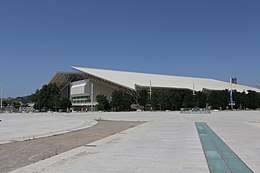
When Greece won the 2005 contest, the Head of the Greek Delegation, Fotini Yiannoulatou, said that ERT was ready to host the event in Athens the next year. However, multiple cities bid to host the 2006 contest, including Thessaloniki and Patras, the second and the third largest city in Greece, respectively. The majors of the three cities (Athens, Thessaloniki, Patras) were said that their cities were ready to host the event. The venues that were rumored for each city were Olympic Indoor Hall for Athens, Pylea Sports Hall for Thessaloniki and Dimitris Tofalos Arena for Patras.
In the end, ERT had chosen Athens to host the event. The venue that was chosen as the host venue was the Nikos Galis Olympic Indoor Hall, which is located in the Athens Olympic Sports Complex, in the capital city of Greece. Completed in 1995, it was the largest indoor venue in use for sporting events at the 2004 Summer Olympics.
Format
Visual design
The official logo of the contest remained the same from 2004 and 2005 with the country's flag in the heart being changed. The 2006 sub-logo created by the design company Karamela for Greek television was apparently based on the Phaistos Disc which is a popular symbol of ancient Greece. According to ERT, it was "inspired by the wind and the sea, the golden sunlight and the glow of the sand". Following Istanbul's "Under The Same Sky" and Kiev's "Awakening", the slogan for the 2006 show was "Feel The Rhythm". This theme was also the basis for the postcards for the 2006 show, which emphasized Greece's historical significance as well as being a major modern tourist destination.
Voting
To save time in the final, the voting time lasted ten minutes and the voting process was changed: points 1-7 were shown immediately on-screen. The spokespersons only announced the countries scoring 8, 10 and 12 points. Despite this being intended to speed proceedings up, there were still problems during voting – EBU imaging over-rode Maria Menounos during a segment in the voting interval and some scoreboards were slow to load. The Dutch spokesperson Paul de Leeuw also caused problems, giving his mobile number to presenter Rouvas during the Dutch results,[3] and slowing down proceedings, also by announcing the first seven points. Constantinos Christoforou (who also represented Cyprus in 1996, 2002 and 2005) saluted from "Nicosia, the last divided capital in Europe"; during Cyprus' reading, the telecast displayed Switzerland by mistake. This voting process has been criticized because suspense was lost by only reading three votes instead of ten. And for the first and only time before the Prespa agreement, the display for the Macedonian entry had the title spelled out in its entirety (as "Former Yugoslav Republic of Macedonia") instead of being abbreviated as it has been in previous years (as "FYR Macedonia").
Returning artists
| Artist | Country | Previous year(s) |
|---|---|---|
| Anna Vissi | 1980 (for | |
| Carola | 1983 and 1991 | |
| Eddie Butler | 1999 (as a member of Eden) | |
| Fabrizio Faniello | 2001 | |
| Ich Troje | 2003 | |
| Victor Diawara (part of LT United) | 2001 (as a member of Skamp) |
Additionally, Hari Mata Hari were selected to represented Bosnia and Herzegovina in the 1999 contest, but their entry was disqualified. Ireland's Brian Kennedy performed in Lumen, the interval act of the 1995 contest. Sigga, who represented Iceland on three different occasions (1990, as a member of Stjórnin; 1992, as a member of Heart 2 Heart; and 1994, as a solo artist), appeared as a backing vocalist for Silvia Night. Host Sakis Rouvas previously represented Greece at the 2004 contest. If No Name had been permitted to represent Serbia and Montenegro, they would have done so for the second consecutive year.
Participating countries
Participating countries in a Eurovision Song Contest must be active members of the EBU.
Semi-final
The semi-final was held on 18 May 2006 at 21:00 (CET). 23 countries performed and all 37 participants and Serbia and Montenegro voted.
Shaded countries qualified for the Eurovision Final
Notes
Final
The finalists were:
- the four automatic qualifiers France, Germany, Spain and the United Kingdom;
- the top 10 countries from the 2005 final (other than the automatic qualifiers);
- the top 10 countries from the 2006 semi-final.
The final was held on 20 May 2006 at 21:00 (CET) and was won by Finland.
Countries in bold automatically qualified for the Eurovision Song Contest 2007 Final.
Notes
Voting during the final and spokespersons
The following people were the spokespersons for their countries. A spokesperson delivers the results of national televoting during the final night, awarding points to the entries on behalf of his or her country.[6] A draw was held to determine each country's voting order. Countries revealed their votes in the following order:

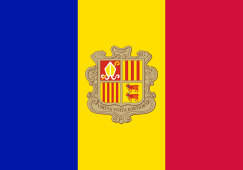






.svg.png)

%3B_Flag_of_Serbia_and_Montenegro_(2003%E2%80%932006).svg.png)














.svg.png)


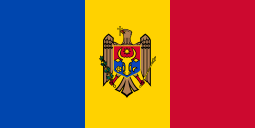







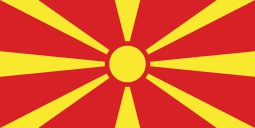

Although Serbia and Montenegro withdrew from the contest, it retained its voting rights.
Score sheet
Televoting was used in all nations except Monaco and Albania. Monaco used a jury as the chances of getting enough votes needed to validate the votes were low. Albania used a jury since there were problems with their televote. In the semi final, Monaco and Albania used the jury voting due to insufficient televoting numbers. Coincidentally, Albania and Monaco were two of the three countries that did not vote for the winning entry, the third one was Armenia.
Semi-final
| Voting procedure used: 100% Televoting 100% Jury vote |
Televoting results | |||||||||||||||||||||||||||||||||||||||
|---|---|---|---|---|---|---|---|---|---|---|---|---|---|---|---|---|---|---|---|---|---|---|---|---|---|---|---|---|---|---|---|---|---|---|---|---|---|---|---|---|
| Armenia | 150 | 2 | 3 | 12 | 12 | 12 | 3 | 7 | 12 | 3 | 3 | 12 | 7 | 7 | 12 | 2 | 10 | 3 | 10 | 8 | 10 | |||||||||||||||||||
| Bulgaria | 36 | 1 | 8 | 4 | 5 | 8 | 3 | 6 | 1 | |||||||||||||||||||||||||||||||
| Slovenia | 49 | 1 | 6 | 7 | 5 | 2 | 2 | 2 | 7 | 3 | 4 | 7 | 3 | |||||||||||||||||||||||||||
| Andorra | 8 | 8 | ||||||||||||||||||||||||||||||||||||||
| Belarus | 10 | 1 | 6 | 3 | ||||||||||||||||||||||||||||||||||||
| Albania | 58 | 1 | 2 | 7 | 3 | 10 | 2 | 2 | 1 | 3 | 5 | 7 | 12 | 3 | ||||||||||||||||||||||||||
| Belgium | 69 | 5 | 7 | 3 | 2 | 5 | 3 | 3 | 5 | 7 | 2 | 1 | 7 | 4 | 3 | 2 | 4 | 6 | ||||||||||||||||||||||
| Ireland | 79 | 3 | 5 | 4 | 4 | 1 | 4 | 3 | 1 | 6 | 6 | 6 | 4 | 3 | 2 | 1 | 2 | 8 | 1 | 2 | 7 | 5 | 1 | |||||||||||||||||
| Cyprus | 57 | 4 | 4 | 1 | 3 | 7 | 7 | 1 | 2 | 10 | 4 | 12 | 2 | |||||||||||||||||||||||||||
| Monaco | 14 | 3 | 2 | 1 | 8 | |||||||||||||||||||||||||||||||||||
| North Macedonia | 76 | 8 | 1 | 8 | 10 | 6 | 8 | 10 | 12 | 5 | 8 | |||||||||||||||||||||||||||||
| Poland | 70 | 3 | 1 | 2 | 7 | 1 | 8 | 2 | 10 | 5 | 1 | 3 | 2 | 4 | 6 | 4 | 4 | 3 | 2 | 2 | ||||||||||||||||||||
| Russia | 217 | 4 | 4 | 7 | 1 | 12 | 7 | 7 | 6 | 2 | 3 | 6 | 4 | 10 | 4 | 8 | 12 | 10 | 1 | 12 | 8 | 12 | 12 | 5 | 12 | 4 | 6 | 12 | 5 | 12 | 5 | 4 | ||||||||
| Turkey | 91 | 10 | 6 | 8 | 1 | 10 | 8 | 10 | 8 | 12 | 3 | 6 | 1 | 8 | ||||||||||||||||||||||||||
| Ukraine | 146 | 2 | 6 | 8 | 6 | 10 | 2 | 2 | 5 | 4 | 3 | 3 | 6 | 6 | 10 | 6 | 10 | 10 | 3 | 10 | 3 | 5 | 2 | 8 | 4 | 3 | 2 | 7 | ||||||||||||
| Finland | 292 | 10 | 10 | 5 | 10 | 8 | 8 | 12 | 10 | 10 | 8 | 8 | 12 | 10 | 10 | 10 | 7 | 6 | 5 | 6 | 8 | 12 | 12 | 5 | 8 | 12 | 10 | 5 | 8 | 12 | 7 | 8 | 7 | 7 | 6 | |||||
| Netherlands | 22 | 2 | 4 | 1 | 3 | 4 | 1 | 2 | 5 | |||||||||||||||||||||||||||||||
| Lithuania | 163 | 6 | 5 | 3 | 4 | 10 | 5 | 4 | 8 | 7 | 5 | 3 | 5 | 8 | 12 | 4 | 5 | 5 | 4 | 10 | 10 | 6 | 1 | 6 | 2 | 8 | 4 | 1 | 6 | 4 | 2 | |||||||||
| Portugal | 26 | 12 | 7 | 7 | ||||||||||||||||||||||||||||||||||||
| Sweden | 214 | 7 | 8 | 6 | 12 | 5 | 12 | 10 | 5 | 4 | 4 | 10 | 7 | 8 | 12 | 5 | 2 | 4 | 4 | 4 | 3 | 7 | 6 | 6 | 5 | 4 | 7 | 7 | 6 | 10 | 8 | 6 | 5 | 4 | 1 | |||||
| Estonia | 28 | 2 | 7 | 8 | 5 | 1 | 5 | |||||||||||||||||||||||||||||||||
| Bosnia and Herzegovina | 267 | 12 | 1 | 12 | 8 | 2 | 6 | 10 | 12 | 6 | 12 | 12 | 12 | 1 | 6 | 2 | 3 | 5 | 8 | 12 | 8 | 7 | 5 | 4 | 5 | 6 | 3 | 10 | 1 | 8 | 7 | 12 | 1 | 10 | 6 | 10 | 10 | 12 | ||
| Iceland | 62 | 7 | 1 | 3 | 6 | 7 | 1 | 2 | 7 | 5 | 2 | 7 | 5 | 1 | 6 | 1 | 1 | |||||||||||||||||||||||
| The table is ordered by appearance in the semi-final, then by pre-determined voting order. | ||||||||||||||||||||||||||||||||||||||||
12 points
Below is a summary of all 12 points in the semi-final:
| N. | Contestant | Voting nation |
|---|---|---|
| 9 | Bosnia and Herzegovina | Croatia, Finland, Monaco, Norway, Romania, Serbia and Montenegro, Slovenia, Switzerland, Turkey |
| 8 | Russia | Armenia, Belarus, Bulgaria, Israel, Latvia, Lithuania, Moldova, Ukraine |
| 6 | ||
| Armenia | Belgium, Cyprus, France, Netherlands, Russia, Spain | |
| Finland | Estonia, Germany, Iceland, Poland, Sweden, United Kingdom | |
| 3 | Sweden | Denmark, Malta, Portugal |
| 1 | ||
| Albania | Macedonia | |
| Cyprus | Greece | |
| Lithuania | Ireland | |
| Macedonia | Albania | |
| Portugal | Andorra | |
| Turkey | Bosnia and Herzegovina |
Final
| Voting procedure used: 100% Televoting 100% Jury vote |
Televoting results | |||||||||||||||||||||||||||||||||||||||
|---|---|---|---|---|---|---|---|---|---|---|---|---|---|---|---|---|---|---|---|---|---|---|---|---|---|---|---|---|---|---|---|---|---|---|---|---|---|---|---|---|
| Switzerland | 30 | 1 | 12 | 3 | 4 | 6 | 4 | |||||||||||||||||||||||||||||||||
| Moldova | 22 | 12 | 3 | 3 | 2 | 1 | 1 | |||||||||||||||||||||||||||||||||
| Israel | 4 | 4 | ||||||||||||||||||||||||||||||||||||||
| Latvia | 30 | 3 | 4 | 8 | 4 | 1 | 2 | 8 | ||||||||||||||||||||||||||||||||
| Norway | 36 | 1 | 6 | 2 | 5 | 3 | 7 | 1 | 1 | 3 | 4 | 1 | 2 | |||||||||||||||||||||||||||
| Spain | 18 | 12 | 6 | |||||||||||||||||||||||||||||||||||||
| Malta | 1 | 1 | ||||||||||||||||||||||||||||||||||||||
| Germany | 36 | 3 | 3 | 1 | 1 | 3 | 3 | 7 | 5 | 5 | 5 | |||||||||||||||||||||||||||||
| Denmark | 26 | 8 | 3 | 6 | 1 | 8 | ||||||||||||||||||||||||||||||||||
| Russia | 248 | 4 | 6 | 8 | 2 | 12 | 7 | 7 | 12 | 3 | 7 | 5 | 3 | 10 | 5 | 5 | 12 | 8 | 2 | 12 | 10 | 1 | 12 | 2 | 12 | 6 | 7 | 10 | 6 | 5 | 12 | 4 | 8 | 10 | 8 | 5 | ||||
| North Macedonia | 56 | 6 | 8 | 8 | 4 | 7 | 8 | 3 | 6 | 6 | ||||||||||||||||||||||||||||||
| Romania | 172 | 5 | 3 | 6 | 2 | 10 | 6 | 6 | 2 | 5 | 4 | 4 | 4 | 6 | 10 | 1 | 10 | 1 | 1 | 4 | 3 | 6 | 4 | 7 | 3 | 5 | 12 | 12 | 2 | 2 | 10 | 2 | 7 | 2 | 2 | 3 | ||||
| Bosnia and Herzegovina | 229 | 12 | 7 | 8 | 2 | 10 | 10 | 6 | 12 | 12 | 8 | 2 | 4 | 2 | 8 | 12 | 10 | 6 | 4 | 5 | 6 | 4 | 7 | 1 | 5 | 3 | 12 | 2 | 12 | 6 | 7 | 12 | 12 | |||||||
| Lithuania | 162 | 3 | 7 | 7 | 10 | 4 | 3 | 8 | 4 | 6 | 3 | 5 | 8 | 12 | 1 | 4 | 6 | 5 | 5 | 8 | 10 | 6 | 1 | 4 | 4 | 10 | 7 | 3 | 4 | 1 | 3 | |||||||||
| United Kingdom | 25 | 2 | 4 | 1 | 1 | 2 | 2 | 8 | 3 | 1 | 1 | |||||||||||||||||||||||||||||
| Greece | 128 | 1 | 10 | 4 | 1 | 10 | 6 | 8 | 3 | 12 | 5 | 5 | 7 | 8 | 5 | 2 | 8 | 1 | 1 | 8 | 12 | 7 | 4 | |||||||||||||||||
| Finland | 292 | 8 | 10 | 4 | 12 | 8 | 6 | 12 | 8 | 10 | 7 | 12 | 12 | 10 | 7 | 10 | 5 | 7 | 8 | 7 | 8 | 12 | 12 | 8 | 7 | 10 | 10 | 6 | 7 | 12 | 7 | 12 | 5 | 6 | 7 | |||||
| Ukraine | 145 | 2 | 5 | 3 | 5 | 12 | 1 | 2 | 4 | 2 | 5 | 1 | 2 | 7 | 6 | 1 | 10 | 6 | 10 | 10 | 3 | 8 | 5 | 6 | 2 | 6 | 5 | 3 | 5 | 8 | ||||||||||
| France | 5 | 2 | 3 | |||||||||||||||||||||||||||||||||||||
| Croatia | 56 | 10 | 10 | 6 | 2 | 12 | 4 | 10 | 2 | |||||||||||||||||||||||||||||||
| Ireland | 93 | 1 | 4 | 2 | 5 | 4 | 5 | 5 | 4 | 2 | 7 | 6 | 4 | 6 | 4 | 3 | 2 | 2 | 8 | 3 | 1 | 4 | 1 | 10 | ||||||||||||||||
| Sweden | 170 | 7 | 8 | 5 | 10 | 7 | 8 | 7 | 5 | 3 | 1 | 10 | 7 | 7 | 6 | 5 | 2 | 6 | 2 | 7 | 4 | 6 | 3 | 5 | 6 | 2 | 3 | 7 | 5 | 5 | 10 | 1 | ||||||||
| Turkey | 91 | 6 | 7 | 12 | 10 | 3 | 12 | 12 | 10 | 1 | 7 | 3 | 4 | 4 | ||||||||||||||||||||||||||
| Armenia | 129 | 1 | 12 | 2 | 7 | 10 | 8 | 12 | 5 | 10 | 8 | 3 | 8 | 7 | 8 | 10 | 8 | 10 | ||||||||||||||||||||||
| The table is ordered by appearance in the final, then by pre-determined voting order. | ||||||||||||||||||||||||||||||||||||||||
12 points
Below is a summary of all 12 points in the final:
| N. | Contestant | Voting nation |
|---|---|---|
| 8 | Bosnia and Herzegovina | Albania, Croatia, North Macedonia, Monaco, Serbia and Montenegro, Slovenia, Switzerland, Turkey |
| Finland | Denmark, Estonia, Greece, Iceland, Norway, Poland, Sweden, United Kingdom | |
| 7 | Russia | Armenia, Belarus, Finland, Israel, Latvia, Lithuania, Ukraine |
| 3 | Turkey | France, Germany, Netherlands |
| 2 | Armenia | Belgium, Russia |
| Greece | Cyprus, Bulgaria | |
| Romania | Moldova, Spain | |
| 1 | Croatia | Bosnia and Herzegovina |
| Lithuania | Ireland | |
| Moldova | Romania | |
| Spain | Andorra | |
| Switzerland | Malta | |
| Ukraine | Portugal |
Other Awards
Marcel Bezençon Awards
The Marcel Bezençon Awards were first handed out during the Eurovision Song Contest 2002 in Tallinn, Estonia honoring the best competing songs in the final. Founded by Christer Björkman (Sweden's representative in the 1992 Eurovision Song Contest and current Head of Delegation for Sweden) and Richard Herrey (member of the Herreys, Eurovision Song Contest 1984 winner from Sweden), the awards are named after the creator of the annual competition, Marcel Bezençon.[7] The awards are divided into 3 categories; Press Award; Artistic Award; and Composer Award.[8]
| Category | Country | Song | Performer(s) | Composer(s) | Final result | Points |
|---|---|---|---|---|---|---|
| Artists Award (Voted by previous winners) |
"Invincible" | Carola | Thomas G:son, Bobby Ljunggren, Henrik Wikström, Carola |
5th | 170 | |
| Composer Award | "Lejla" | Hari Mata Hari | Željko Joksimović, Fahrudin Pecikoza, Dejan Ivanović |
3rd | 229 | |
| Press Award | "Hard Rock Hallelujah" | Lordi | Mr. Lordi | 1st | 292 |
Barbara Dex Award
The Barbara Dex Award has been annually awarded by the fan website House of Eurovision since 1997, and is a humorous award given to the worst dressed artist each year in the contest. It is named after the Belgian artist, Barbara Dex, who came last in the 1993 contest, in which she wore her own self designed (awful) dress.
| Country | Song | Performer(s) | Composer(s) |
|---|---|---|---|
| "Coisas de nada" | Nonstop | José Manuel Afonso, Elvis Veiguinha |
Other countries




%3B_Flag_of_Serbia_and_Montenegro_(2003%E2%80%932006).svg.png)
Ratings
After the Contest, EBU officials stated that the overall ratings for the Semi-Final were 35% higher than in 2005, and for the Final had risen by 28%.
In France, average market shares reached 30.3%, up by 8% over the 2005 figure. Other countries that showed a rise in average market shares included Germany with 38% (up from 29%), United Kingdom with 37.5% (up from 36%), Spain with 36% (up from 35%), Ireland with 58% (up from 35%) and Sweden, which reached over 80% compared to 57% the year previously.
Voting revenues had also risen from the Kiev Contest, and the official Eurovision website, www.eurovision.tv, reported visits from over 200 countries and over 98 million page views, compared with 85 million in 2005.
Returning artists
| Artist | Country | Previous Year(s) |
|---|---|---|
| Anna Vissi | 1980, 1982 (for Cyprus) | |
| Carola | 1983, 1991 (winner) | |
| Eddie Butler | 1999 (part of Eden) | |
| Viktoras Diawara (part of LT United) | 2001 (part of SKAMP) | |
| Fabrizio Faniello | 2001 | |
| Ich Troje | 2003 |
Broadcasting
International broadcasts
.svg.png)
- Although Australia was not itself eligible to enter, the semi-final and final were broadcast on SBS. As is the case each year, they were not however broadcast live due to the difference in Australian time zones. Australia aired the United Kingdom's broadcast, including commentary from Paddy O'Connell and Terry Wogan. Before the broadcasts, viewers were told by an SBS host that the Eurovision Song Contest was one of their most popular programmes. The final rated an estimated 462,000, and was ranked 21st of the broadcaster's top rating programs for the 2005/06 financial year.

- Azerbaijan were willing to enter the contest but since AzTV applied for active EBU membership but was denied on June 18, 2007, they missed the contest and had to wait until they were accepted. Another Azerbaijan broadcaster, İctimai, broadcast the contest. It was a passive EBU member, and had broadcast it for the last 2 years. It was the only non-participating broadcaster this year to send its own commentators to the contest.
.svg.png)
- Italian television did not enter because RAI, the national broadcaster, is in strong competition with commercial TV stations and they believe that the Eurovision Song Contest would not be a popular show in Italy. They have not broadcast the contest in recent years, although an independent Italian channel for the gay community has shown the show.
- Worldwide
- A live broadcast of the Eurovision Song Contest was broadcast worldwide by satellite through Eurovision streams such as Channel One Russia, ERT World, TVE Internacional, TVP Polonia, RTP Internacional and TVR i. The official Eurovision Song Contest website also provided a live stream without commentary using the peer-to-peer transport Octoshape.
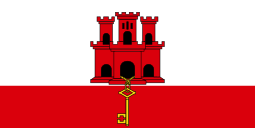
- Gibraltar screened only the final.
Commentators




.svg.png)
.svg.png)

























%3B_Flag_of_Serbia_and_Montenegro_(2003%E2%80%932006).svg.png)







Official album
| Eurovision Song Contest: Athens 2006 | ||||
|---|---|---|---|---|
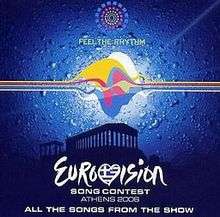 | ||||
| Compilation album by | ||||
| Released | 28 April 2006 | |||
| Genre | Pop | |||
| Length |
| |||
| Label | CMC | |||
| Eurovision Song Contest chronology | ||||
| ||||
Eurovision Song Contest: Athens 2006 was the official compilation album of the 2006 Contest, put together by the European Broadcasting Union and released by CMC International on 28 April 2006. The album featured all 37 songs that entered in the 2006 contest, including the semi-finalists that failed to qualify into the grand final.[36]
Charts
| Chart (2006) | Peak position |
|---|---|
| German Compilation Albums (Offizielle Top 100)[37] | 2 |
References
- "Athens 2006". eurovision.tv. Retrieved 2020-03-30.
- "In pictures: Eurovision 2006". BBC News. 2006-05-21. Retrieved 2008-08-09.
- "Eurovision Songcontest Dutch tele-votes". YouTube. Retrieved 2012-08-09.
- "Eurovision Song Contest 2006". The Diggiloo Thrush. Retrieved 5 March 2012.
- https://eurovision.tv/country/moldova
- Archived June 3, 2006, at the Wayback Machine
- "Marcel Bezençon Award - an introduction". Poplight. Archived from the original on 2013-10-17. Retrieved 2009-06-02.
- "Winners of the Marcel Bezençon Awards 2012 | News | Eurovision Song Contest - Baku 2012". Eurovision.tv. Retrieved 2012-08-09.
- "Abschied vom Song Contest". kurier.at. Kurier. 19 June 2005. Archived from the original on 19 June 2005. Retrieved 23 June 2020.
- Philips, Roel (18 June 2005). "Austria withdraws from 2006 Eurovision Song Contest". ESCToday. Archived from the original on 13 February 2020. Retrieved 23 June 2020.
- Bakker, Sietse (7 October 2005). "'No Czech Republic in Athens'". ESCToday. Archived from the original on 11 December 2019. Retrieved 23 June 2020.
- Bakker, Sietse (5 October 2005). "'Georgia won't subscribe for Athens 2006'". ESCToday. Archived from the original on 10 April 2019. Retrieved 23 June 2020.
- Bakker, Sietse. "Hungary withdraws for Athens 2006". ESCToday. Archived from the original on 9 October 2016. Retrieved 23 June 2020.
- Mytko, Oksana (18 May 2006). "Евровидение-2006: Сегодня ночь в Афинах будет звездной". "7 дней". Retrieved 20 March 2019.
- Christian Masson. "2006 - Athènes". Songcontest.free.fr. Retrieved 2012-08-09.
- Royston, Benny (20 December 2006). "Exclusive: Bosnia Herzegovina – Song on 4th March". esctoday.com. Retrieved 25 June 2017.
- "• Pogledaj temu - Prijedlog - Eurosong večer(i) na HRT-u!". Forum.hrt.hr. 2011-03-27. Archived from the original on 2012-03-14. Retrieved 2012-08-09.
- Savvidis, Christos (OGAE Cyprus)
- "Forside". esconnet.dk. Archived from the original on 2012-03-24. Retrieved 2012-08-09.
- Archived September 2, 2011, at the Wayback Machine
- "Eurovision 2006 Voting Part 1/3 With Finnish Commentary". YouTube. Retrieved 2012-08-09.
- Julkaistu To, 29/04/2010 - 10:19 (2010-04-29). "YLE Radio Suomen kommentaattorit | Euroviisut | yle.fi | Arkistoitu". yle.fi. Retrieved 2012-08-09.
- "Dr. Peter Urban kommentiert - Düsseldorf 2011". Duesseldorf2011.de. Archived from the original on 2012-03-24. Retrieved 2012-08-09.
- "Thomas Mohr: Mit Dschinghis Khan im Garten". Eurovision.de. 2011-05-14. Retrieved 2012-10-28.
- "Morgunblaðið, 20.05.2006". Timarit.is. Retrieved 2012-08-09.
- "RTE so lonely after loss of Gerry – Marty". 20 May 2010. Retrieved 29 May 2010.
He has been providing commentary for Irish viewers since 2000 and maintains great enthusiasm for the much lampooned contest.
- Archived February 12, 2010, at the Wayback Machine
- Christian Masson. "2005 - Kiev". Songcontest.free.fr. Retrieved 2012-08-09.
- "Welkom op de site van Eurovision Artists". Eurovisionartists.nl. Retrieved 2012-08-09.
- "Adresse Athen - NRK". Nrk.no. Archived from the original on 2012-06-18. Retrieved 2012-08-09.
- "Pliki użytkownika Eurowizja". Chomikuj.pl. Retrieved 2012-08-09.
- "Comentadores Do ESC - escportugalforum.pt.vu | o forum eurovisivo português". 21595.activeboard.com. Archived from the original on April 21, 2012. Retrieved 2012-08-09.
- "FORO FESTIVAL DE EUROVISIÓN • Ver Tema - Uribarri comentarista Eurovision 2010". Eurosongcontest.phpbb3.es. Archived from the original on 2012-03-17. Retrieved 2012-08-09.
- "Infosajten.com". Infosajten.com. Archived from the original on July 18, 2012. Retrieved 2012-08-09.
- "Swedes stay at home with Eurovision fever". The Local. 2009-05-16. Archived from the original on 2013-05-15. Retrieved 2012-09-29.
- Sietse Bakker (28 April 2006). "Athens 2006 album available in stock now!". esctoday.com. ESCToday. Retrieved 5 November 2014.
- "Eurovision Song Contest 2006". Offiziellecharts.de. GfK Entertainment Charts. Retrieved 17 March 2018.
External links
| Wikimedia Commons has media related to Eurovision Song Contest 2006. |
- Official Eurovision Website – Audio and video clips available in the Multimedia Lounge
- Eurovision Record Book
